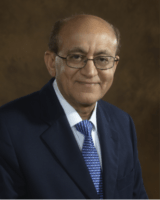22 Mar Obesity Fuels Resistance To Anti-VEGF Therapy in Breast Cancer Patients
MedicalResearch.com Interview with:
Dai Fukumura, M.D., Ph.D
Associate Professor, Radiation Oncology
Harvard Medical School
Deputy Director, Edwin L. Steele Laboratory,
Radiation Oncology, Massachusetts General Hospital
Boston, MA
Dr. Joao Incio PhD
Post-Doc, Edwin L. Steele Laboratory
Dr. Rakesh K. Jain PhD
Andrew Werk Cook Professor of Tumor Biology and director of the Edwin L. Steele Laboratories for Tumor Biology
Rradiation oncology department
Massachusetts General Hospital and Harvard Medical School.
MedicalResearch.com: What is the background for this study?
Response: Based on promising data from preclinical studies and subsequent increase in progression-free survival in patients, anti-vascular endothelial growth factor (VEGF) therapy received accelerated approval for metastatic breast cancer. However, this approval was withdrawn in the United States based on the lack of overall survival benefit in several subsequent phase III studies in metastatic and adjuvant settings. Potential mechanisms of resistance to anti-VEGF therapy include the upregulation of alternative angiogenic and pro-inflammatory factors. Production of some of these factors has been shown to increase in obesity specifically in hypoxic adipose tissues including the breast. Given that up to 70% of breast cancer (BC) patients in the United States are overweight or obese, we addressed one simple but important question in this study: Is obesity contributing to anti-VEGF treatment resistance in breast cancer?
MedicalResearch.com: What are the main findings?
Response: By analyzing data from a recent phase II trial for luminal and basal breast cancers, which revealed limited efficacy of anti-VEGF (bevacizumab) in combination with chemotherapy, we found that breast cancer patients with obesity have elevated systemic levels of IL-6 and/or FGF-2 and demonstrate a worse tumor vascular response to anti-VEGF treatment. Using clinically relevant mouse models of breast cancers, we found that diet-induced obesity is accompanied by increased production of IL-6 and/or FGF-2, particularly in adipocytes, fibroblasts, and myeloid cells in adipocyte-rich areas, and impairs the effects of anti-VEGF on signaling, angiogenesis, tumor growth and metastasis. In the estrogen receptor positive (ER+) E0771 BC model in which obesity is associated with increased levels of IL-6 in tumors, genetic or pharmacological blockade of IL-6 abrogated the obesity-induced resistance to anti-VEGF therapy in both primary and metastatic sites by directly affecting tumor cell proliferation, normalizing the function of tumor vasculature, alleviating hypoxia and improving immunosuppression.
In addition, in a triple negative breast cancer (TNBC) mouse model (MCaIV) showing elevated levels of FGF-2 in obesity, FGF receptor blockade or metformin, which reduced FGF-2, decreased vessel density and also restored tumor sensitivity to anti-VEGF therapy in obese mice. Collectively, our preclinical and clinical studies indicate that obesity fuels resistance to anti-VEGF therapy in breast cancers via production of inflammatory and angiogenic factors depending on the subtype of breast cancers. Targeting these resistance mechanisms may rejuvenate antiangiogenic therapy in breast cancer treatment.
MedicalResearch.com: What should readers take away from your report?
Response: The results from this study uncovered at least in part underlying mechanisms of the failure of anti-VEGF therapy in breast cancer patients. Identifying and validating predictive biomarkers of response and gaining the ability to stratify cancer patients to currently approved antiangiogenic drugs remain major priorities in oncology. With more than a dozen antiangiogenic agents approved for multiple malignancies, the need for biomarkers is more critical than ever for efficacy, safety, and cost considerations. Stratification of patients with biomarkers such as BMI could potentially bring a rapidly translatable approach to patient selection for anti-VEGF therapies in BC patients.
Given that obesity associated with worse prognosis in colon and kidney cancer patients when treated with antiangiogenic therapy, it is plausible that the lack of stratification of breast cancer patients according to body weight or BMI could contribute to the absence of overall survival benefit with anti-VEGF therapy. Furthermore, we have identified that IL-6 and potentially FGF-2 mediate obesity-induced resistance to anti-VEGF therapy and its reversal by targeting these factors. Our findings can be rapidly translated to the clinic due to the availability of inhibitors for IL-6 such as tocilizumab – an FDA approved anti-IL-6R antibody. In addition, other antibodies targeting IL-6 (e.g. siltuximab) have been included in clinical trials for numerous cancers, such as multiple myeloma, lung and renal cell carcinoma and B-lymphoproliferative disorders, with encouraging results and a favorable safety profile. On the other hand, drugs targeting the FGFR pathway (e.g. dovitinib) have also already moved into the clinical arena in patients that progressed after anti-VEGF therapies.
Finally, this study suggests the repurposing of metformin, a widely used drug to treat type-2 diabetes, to overcome resistance to antiangiogenic therapy in patients that express high levels of FGF-2. Given the prevalence of obesity, which accounts for up to ~ 50% increased risk of death in women with breast cancer, the insight from our study is critical to improve clinical outcome in breast cancer. Incorporating these parameters in patient selection could represent a paradigm shift in treatment, as currently there are no biomarkers of response to anti-VEGF therapy.
MedicalResearch.com: What recommendations do you have for future research as a result of this work?
Response: The results from this study also suggest that studying cancer in obese mouse models may enhance the translational relevance of preclinical studies. Due to the pandemic of obesity in general population worldwide, obese mouse models reflect better the clinical setting (e.g. lack of response to anti-VEGF), and studying mechanisms of resistance induced by obesity (not present in lean models) may provide a better understanding of treatment failure and biomarkers of response in patients.
MedicalResearch.com: Is there anything else you would like to add?
- This is the first study to show that that obesity and obesity-related factors (IL-6, potentially FGF-2) induce resistance to VEGF-targeted therapy in both BC patients and mouse BC models that faithfully resemble clinical disease.
- This study is the first to show increased hypoxia and hypovascularization in breast cancers in obese patients that was recapitulated in mouse models.
- This is the first study demonstrating that a complex interaction of adipocytes, hypoxia, inflammation, and immune cell recruitment in breast tumors fosters tumor progression.
- This is the first study to propose that obesity markers such as body mass index (BMI) could provide personalized anti-VEGF therapy with additional blockade of cytokines/growth factors (i.e., IL-6 and potentially FGF-2) for overweight or obese breast cancer patients.
Disclosures: We have no direct conflict of interests with this study.
BY JOAO INCIO, JENNIFER A. LIGIBEL, DANIEL T. MCMANUS, PRIYA SUBOJ, KEEHOON JUNG, KOSUKE KAWAGUCHI, MATTHIAS PINTER, SUBOJ BABYKUTTY, SHAN M. CHIN, TRUPTI D. VARDAM, YUHUI HUANG, NUH N. RAHBARI, SYLVIE ROBERGE, DANNIE WANG, IGOR L. GOMES-SANTOS, STEFAN B. PUCHNER, CHRISTOPHER L. SCHLETT, UDO HOFFMMAN, MAREK ANCUKIEWICZ, SARA M. TOLANEY, IAN E. KROP, DAN G. DUDA, YVES BOUCHER, DAI FUKUMURA, RAKESH K. JAIN
SCIENCE TRANSLATIONAL MEDICINE14 MAR 2018
[wysija_form id=”3″]
The information on MedicalResearch.com is provided for educational purposes only, and is in no way intended to diagnose, cure, or treat any medical or other condition. Always seek the advice of your physician or other qualified health and ask your doctor any questions you may have regarding a medical condition. In addition to all other limitations and disclaimers in this agreement, service provider and its third party providers disclaim any liability or loss in connection with the content provided on this website.
Last Updated on March 22, 2018 by Marie Benz MD FAAD



